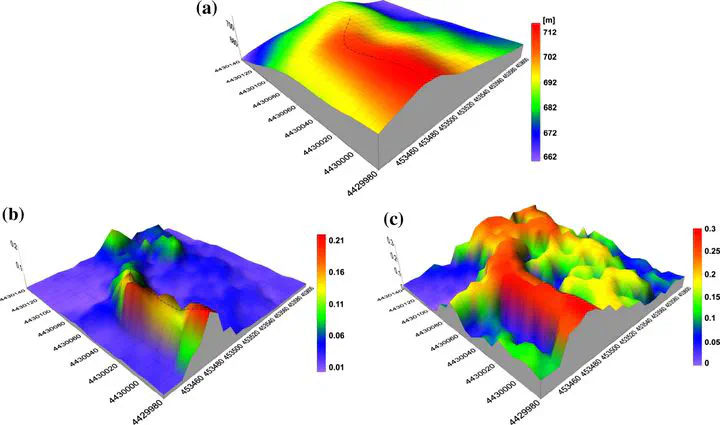An Adaptive Surface Filter for Airborne Laser Scanning Point Clouds by Means of Regularization and Bending Energy
Jan 1, 2014·
 ,
,
,
,
,
,
,
·
0 min read
,
,
,
,
,
,
,
·
0 min read
Han Hu
Yulin Ding
Qing Zhu
Bo Wu
Hui Lin
Zhiqiang Du
Yeting Zhang
Yunsheng Zhang

Abstract
The filtering of point clouds is a ubiquitous task in the processing of airborne laser scanning (ALS) data; however, such filtering processes are difficult because of the complex configuration of the terrain features. The classical filtering algorithms rely on the cautious tuning of parameters to handle various landforms. To address the challenge posed by the bundling of different terrain features into a single dataset and to surmount the sensitivity of the parameters, in this study, we propose an adaptive surface filter (ASF) for the classification of ALS point clouds. Based on the principle that the threshold should vary in accordance to the terrain smoothness, the ASF embeds bending energy, which quantitatively depicts the local terrain structure to self-adapt the filter threshold automatically. The ASF employs a step factor to control the data pyramid scheme in which the processing window sizes are reduced progressively, and the ASF gradually interpolates thin plate spline surfaces toward the ground with regularization to handle noise. Using the progressive densification strategy, regularization and self-adaption, both performance improvement and resilience to parameter tuning are achieved. When tested against the benchmark datasets provided by ISPRS, the ASF performs the best in comparison with all other filtering methods, yielding an average total error of 2.85% when optimized and 3.67% when using the same parameter set.
Publication
ISPRS Journal of Photogrammetry and Remote Sensing